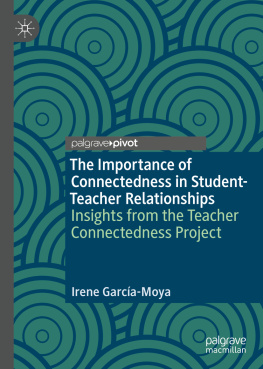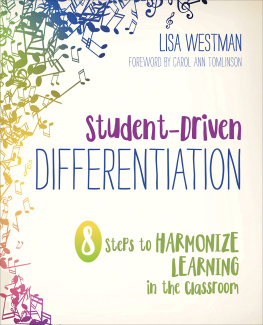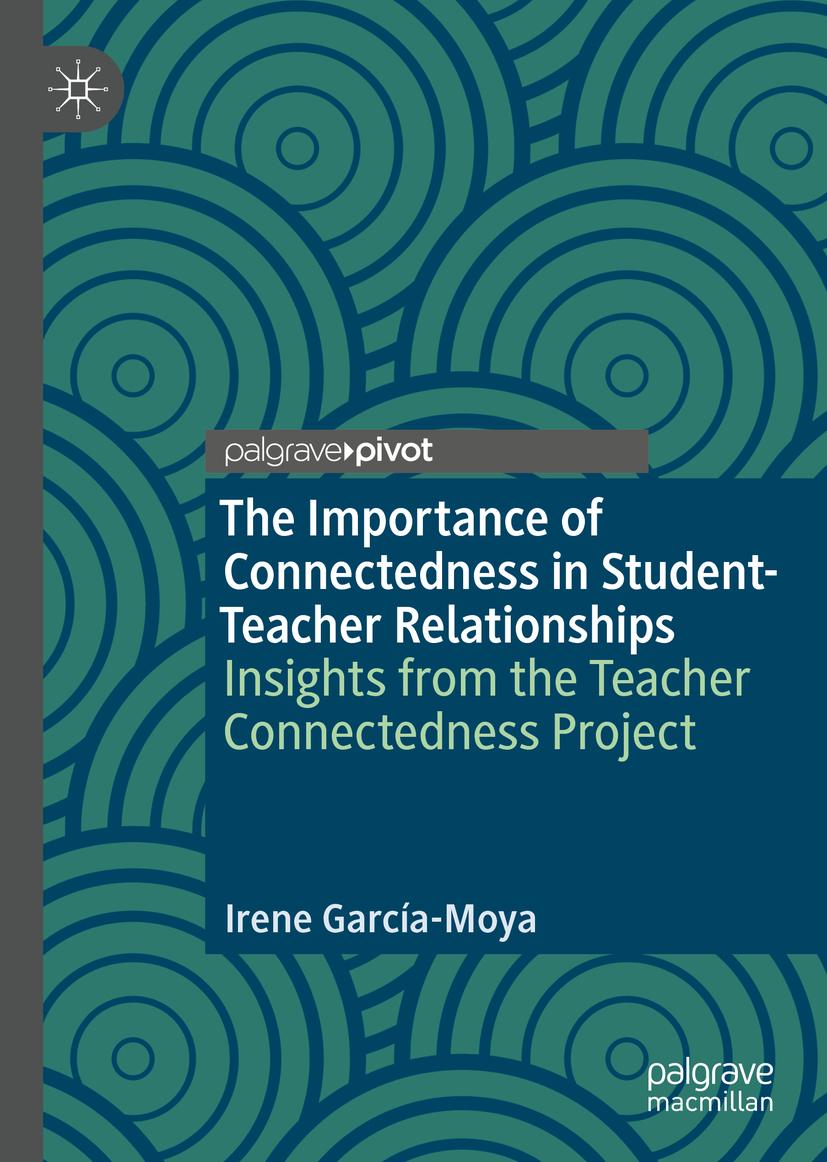1. The Importance of Student-Teacher Relationships for Wellbeing in Schools
This chapter begins with a brief comment on the status of wellbeing in current global health promotion and education agendas. Next, a state-of-the-art account of theoretical models and empirical research about student-teacher relationships and their importance for wellbeing in schools is presented. Specifically, this chapter reviews the contributions of attachment theory, parenting style theory, self-determination theory, social support models, and informal or natural mentoring approaches to the study of student-teacher relationships. Additionally, this chapter provides an overview of empirical research that clearly supports a link between student-teacher relationships and student wellbeing. Finally, changes in student-teacher relationships during the transition from primary to secondary school are briefly delineated, and the importance of student-teacher relationships for secondary school students is underscored.
The Place of Wellbeing in Health Promotion and Education Agendas
Wellbeing is a complex concept. Although a universal definition of wellbeing does not exist, there is a consensus that it is a multidimensional construct that comprises psychological, social, and emotional dimensions. One frequently cited definition has been proposed by Diener (, p. 38).
Wellbeing is increasingly included in global health promotion policy agendas and strategic documents. The Health 2020 strategy (WHO, ).
In addition, both Health 2020 and the Mental Health Action Plan have underscored the importance of promoting environments that nurture health and wellbeing. This is in line with a healthy settings approach, which can be traced back to the Ottawa Charter. Health 2020 considers schools to be an example of one such healthy setting, which is defined as the place or social context in which people engage in daily activities and where environmental, organisational, and personal factors interact to affect health and wellbeing (WHO, .
Box 1.1School as a Key Social Setting for the Promotion of Health and Wellbeing, as Described in the Health for the Worlds Adolescents Report
Among all the sectors that play critical roles in adolescent health, education is key. Not only is education important in itself, but schools are also a setting where adolescents can receive skills-based health education and, sometimes, services. Furthermore, the social environment or ethos of the school can contribute positively to physical and mental health . It is in the interest of the education sector for adolescents to be healthy, because they are better able to learn and benefit from their years in school. (WHO, , p. 8)
Important initiatives that have been informed by the aforementioned settings approach have been introduced in schools to promote the health of children and adolescents. A notable example of such initiatives is the Health Promoting Schools framework. However, these interventions have primarily aimed to promote healthy lifestyles and prevent risk behaviours and bullying (Langford et al., ). Thus, a more holistic approach towards the promotion of wellbeing is essential.
With regard to educational policy agendas, the Europe Cooperation Framework in Education and Training (ET 2020) states that education is an investment in human capital that is key for promoting personal fulfilment, social cohesion, and active citizenship (Council of the European Union, ). First, wellbeing is mentioned in the description of one of the new priority areas, but it is not elaborated upon when this priority is developed into concrete issues that necessitate cooperation. Second, measures to support the wellbeing of students are recommended as part of early school leaving policies; however, the aim is reducing early school leaving (rather than supporting wellbeing). Although the mentions of wellbeing in ET 2020 can be regarded as a step in the right direction, these references are quite peripheral when compared with the aforementioned health policy documents.
Encouragingly, there have been a few less timid mentions of wellbeing in the discussion of cooperation areas for creating better schools. Specifically, it has been contended that diverse forms of school violence undermine students wellbeing, and wellbeing has been explicitly mentioned as an important prerequisite for learning to occur (European Commission, ). Despite that, when PISA results are published, academic performance indicators continue receiving much more attention than wellbeing. Therefore, there is a need for serious advocacy efforts that can ensure that wellbeing is recognised as an important indicator of education quality, and that it receives as much attention as academic performance.












